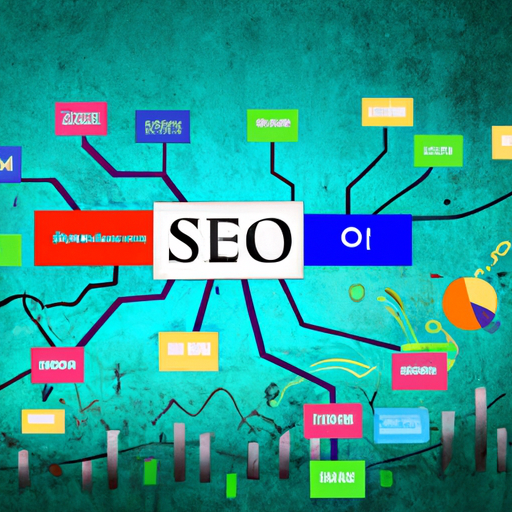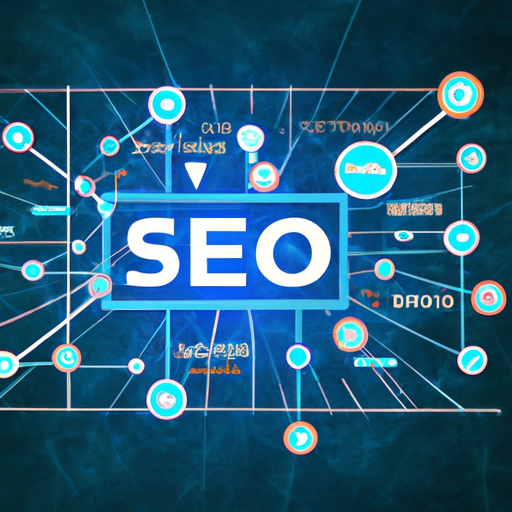
Are you interested in maximizing your SEO efforts and boosting your income? Look no further! In this comprehensive step-by-step guide, we will show you how to harness the power of AI in SEO to make a whopping $1,000 a day. From uncovering valuable keywords to optimizing your website for search engines, we will walk you through the entire process. Whether you are a seasoned SEO professional or a beginner, this guide has got you covered. Get ready to unlock the potential of AI and watch your profits soar!
1. Understanding AI in SEO
What is AI
Artificial Intelligence (AI) refers to the capability of a computer system to perform tasks that typically require human intelligence. AI algorithms enable machines to learn from data, recognize patterns, and make decisions or perform actions based on that information. In the context of SEO, AI is revolutionizing the way websites are optimized, allowing for more effective strategies and better outcomes.
What is SEO
Search Engine Optimization (SEO) is the practice of optimizing a website to enhance its visibility and ranking on search engine results pages (SERPs). It involves various techniques and strategies aimed at improving a website’s organic (non-paid) traffic by increasing its relevance and authority in the eyes of search engines like Google.
How AI is transforming SEO
AI is transforming SEO by streamlining and automating various processes, making them more efficient and effective. With AI-powered tools, marketers can now gather and analyze large amounts of data, identify patterns, and make data-driven decisions in real-time. AI also helps optimize content creation, on-page SEO, link building, and data analysis, resulting in improved website performance and search rankings.
2. Benefits of Using AI in SEO
Improved keyword research
Keyword research is essential for understanding user intent and optimizing website content accordingly. AI-powered tools can analyze massive amounts of data, including search queries, user behavior, and competitor analysis, to identify high-performing keywords. With AI, the process becomes more efficient, precise, and yields better results.
Enhanced content creation
AI-powered tools assist in content creation by generating ideas, outlines, and even complete articles. These tools take into account factors like relevancy, trending topics, and user intent to ensure that the content produced is of high quality and optimized for search engines. This helps save time and effort while ensuring the production of engaging and relevant content.
Optimized on-page SEO
AI can greatly improve on-page SEO elements such as meta tags, title optimization, and image tags. By analyzing the content and comparing it to established best practices, AI tools can provide recommendations for optimizing these elements. This ensures that your website is easily discoverable by search engines and attracts more organic traffic.
Effective link building strategies
Link building is a crucial part of SEO, and AI tools can assist in identifying relevant and authoritative websites for potential link building opportunities. These tools analyze data to determine the credibility and relevance of a website, enabling marketers to make informed decisions when building their backlink profile. AI can also streamline outreach efforts, improving the efficiency and effectiveness of link building campaigns.
Accurate data analysis
Data analysis is vital for understanding website performance, user behavior, and competitor insights. AI-powered tools make the process more accurate and efficient by analyzing large amounts of data in real-time. Marketers can gain valuable insights into user preferences, industry trends, and competitors’ strategies, allowing for more informed decision-making and continuous optimization.

3. Step 1: Setting Up Your AI SEO Toolbox
Research and choose an AI-powered SEO tool
The first step in leveraging AI for SEO is to research and choose the right AI-powered SEO tool. There are various options available, each with its own set of features and functionalities. It’s essential to consider factors such as reputation, user reviews, and compatibility with your existing systems before making a decision.
Installation and setup
Once you have selected an AI-powered SEO tool, the next step is to install and set it up. This usually involves integrating the tool with your website or CMS (Content Management System). Follow the instructions provided by the tool’s documentation to ensure a smooth installation process.
Familiarizing with the tool’s features and functionalities
After installation, take the time to familiarize yourself with the tool’s features and functionalities. Explore the various options and settings available, and understand how they can benefit your SEO efforts. Many AI-powered SEO tools offer user guides, tutorials, and customer support to assist you in making the most of the tool’s capabilities.
4. Step 2: Conducting Keyword Research with AI
Understanding the importance of keyword research
Keyword research is the foundation of every successful SEO strategy. By understanding the keywords and phrases that users search for, you can tailor your content to meet their needs and increase your chances of ranking higher in search results. AI-powered tools can significantly enhance the keyword research process, providing valuable insights and opportunities for optimization.
Utilizing AI tools for comprehensive keyword analysis
AI tools can analyze vast amounts of data to identify relevant keywords and their search volumes. These tools can also provide additional metrics such as keyword difficulty, competition level, and trends over time. By leveraging AI for keyword analysis, you can uncover valuable opportunities that might have been overlooked otherwise.
Identifying long-tail keywords with high search volume
Long-tail keywords are specific and highly targeted phrases that users search for. While they may have lower search volumes individually, collectively they can drive significant traffic and conversions. AI tools can help identify long-tail keywords that have high search volumes and lower competition, allowing you to target niche audiences and increase your visibility in search results.
Competitor analysis using AI-driven insights
AI tools can also help with competitor analysis by examining the keywords your competitors are targeting and the success they are having with those keywords. By leveraging AI-driven insights, you can identify gaps in your own keyword strategy and uncover new opportunities to compete effectively.

5. Step 3: Creating SEO-Optimized Content
Leveraging AI-generated content ideas and outlines
AI-powered tools can generate content ideas and outlines based on user intent and popular industry topics. These tools analyze user behavior, search trends, and competitor insights to generate ideas that align with search engine algorithms. By utilizing AI-generated content ideas and outlines, you can ensure your content aligns with current trends and effectively meets user expectations.
Using AI tools for content optimization and relevance
AI tools can analyze the content you create and provide recommendations for optimizing it for search engines. They can suggest changes to improve readability, keyword integration, and other on-page factors that impact SEO. By leveraging AI tools for content optimization and relevance, you can ensure your content is search engine friendly while maintaining its quality and relevance to your target audience.
Implementing natural language generation techniques
Natural Language Generation (NLG) is a branch of AI that focuses on creating human-like text. AI-powered tools utilizing NLG techniques can help marketers craft more engaging and natural-sounding content. By implementing NLG techniques, you can improve the readability and conversational tone of your content, enhancing user experience and encouraging higher engagement.
Ensuring proper keyword integration
Proper keyword integration is essential for optimizing your content for search engines. AI tools can help you identify the best positions and frequencies for using keywords within your content. By ensuring proper keyword integration, you can effectively communicate your content’s relevance to search engines while providing value to your audience.
6. Step 4: Optimizing On-Page SEO with AI
AI-assisted meta tags and title optimization
Meta tags and titles play a crucial role in SEO as they provide search engines with information about your web pages. AI tools can assist in optimizing meta tags and titles by analyzing the content and providing recommendations for improvements. By leveraging AI-assisted meta tags and title optimization, you can enhance your website’s visibility and click-through rates.
AI-powered image and video optimization
Images and videos are important elements of web content, but they can also impact website performance if not optimized properly. AI-powered tools can analyze images and videos to ensure they are appropriately compressed, have relevant alt text, and adhere to best practices for file formats. By leveraging AI for image and video optimization, you can improve your website’s loading speed and enhance user experience.
Improving website performance using AI-based suggestions
Website performance is a critical factor in SEO, as search engines prioritize fast and responsive websites. AI-based tools can provide suggestions for improving website performance by identifying areas that could be optimized, such as code optimization, caching, and reducing server response time. By implementing AI-based suggestions, you can boost your website’s performance and improve its search rankings.
Utilizing AI for better user experience and engagement
AI-based tools can analyze user behavior and provide insights into how to optimize your website for better user experience and engagement. By leveraging AI, you can personalize user experiences, provide relevant recommendations, and improve website navigation. This can lead to increased user satisfaction, longer visit durations, and higher conversion rates.

7. Step 5: AI-Driven Link Building Strategies
Understanding the importance of quality backlinks
Quality backlinks play a crucial role in improving a website’s authority and search rankings. AI tools can help identify websites that are relevant and authoritative in your industry, allowing you to target them for link building opportunities. By understanding the importance of quality backlinks, you can enhance your website’s visibility and credibility in the eyes of search engines.
Using AI to identify relevant and authoritative websites
AI tools can analyze vast amounts of data to identify websites that have high relevance and authority in your industry. These tools consider factors such as domain authority, backlink profiles, and content quality to determine a website’s credibility. By leveraging AI to identify relevant and authoritative websites, you can focus your link building efforts on partners that are likely to provide the most value.
AI tools for outreach and link building campaigns
AI tools can streamline the outreach process by automating tasks such as finding contact information, personalizing outreach emails, and monitoring responses. These tools can save time and effort, allowing marketers to focus on building meaningful relationships with potential link partners. By utilizing AI tools for outreach and link building campaigns, you can improve your efficiency and increase your chances of success.
Monitoring and analyzing link building efforts using AI
AI tools can assist in monitoring and analyzing the effectiveness of your link building efforts. They can track backlinks, measure their impact on your website’s visibility and rankings, and provide insights to optimize your strategy. By leveraging AI for monitoring and analyzing link building efforts, you can make data-driven decisions to continually improve your link profile.
8. Step 6: Harnessing AI for Data Analysis
Understanding the role of data in SEO
Data analysis is a vital component of SEO as it provides insights into website performance, user behavior, and industry trends. AI tools can analyze large amounts of data in real-time, allowing marketers to gain valuable insights quickly and accurately. By understanding the role of data in SEO, you can leverage AI to make informed decisions and drive continuous optimization.
Analyzing website and competitor data using AI
AI tools can analyze website data, such as traffic sources, user engagement, and conversion rates, to identify areas of improvement. These tools can also analyze competitor data to uncover insights into their strategies and identify potential opportunities. By utilizing AI for analyzing website and competitor data, you can gain a competitive edge and optimize your SEO efforts accordingly.
Leveraging AI for accurate performance tracking
AI tools can provide accurate performance tracking by analyzing various metrics and trends over time. They can identify changes in search rankings, organic traffic, and user behavior, allowing marketers to measure the effectiveness of their SEO strategies. By leveraging AI for accurate performance tracking, you can identify what works and what doesn’t, making data-driven optimizations.
Utilizing data-driven insights for continuous optimization
AI tools can provide data-driven insights that guide continuous optimization efforts. By analyzing data and identifying patterns, marketers can make informed decisions to improve their SEO strategies. These insights can help identify areas that need improvement, uncover new opportunities, and ensure that marketing efforts align with user preferences and search engine algorithms.

9. Step 7: Monetization Strategies with AI in SEO
Implementing AI-powered advertising campaigns
AI-powered advertising campaigns can help optimize your marketing efforts by identifying the most effective ad placements, targeting specific audience segments, and optimizing bidding strategies. By implementing AI-powered advertising campaigns, you can reach the right audience at the right time, increasing your chances of generating revenue.
Leveraging AI for personalized user experiences
AI can enhance user experiences by personalizing website content, recommendations, and interactions based on user behavior and preferences. By leveraging AI for personalized user experiences, you can provide tailored solutions, improve engagement, and increase the likelihood of driving conversions.
Integrating AI-driven affiliate marketing techniques
AI can improve affiliate marketing by identifying the most relevant and high-performing affiliate partners. AI tools can analyze various data points, including conversion rates, user engagement, and demographics, to assess the performance of different affiliates. By integrating AI-driven affiliate marketing techniques, you can optimize your affiliate partnerships and maximize revenue potential.
Testing and optimizing revenue-generating models
AI-powered tools can assist in testing different revenue-generating models, such as subscription plans, freemium options, or pay-per-click advertising. By analyzing user behavior, engagement, and conversion data, AI tools can help determine the most effective revenue-generating models for your specific niche and target audience. By testing and optimizing revenue-generating models with AI, you can maximize your earnings potential.
10. Additional Tips and Best Practices
Keeping up with AI advancements and updates
The field of AI is continuously evolving, with new technologies and advancements being made regularly. It’s important to stay updated with the latest AI trends, tools, and techniques relevant to SEO. By keeping up with AI advancements and updates, you can leverage the latest tools and strategies to stay ahead of the competition.
Regularly revisiting and improving SEO strategies
SEO is a dynamic field, and what works today may not work tomorrow. It’s important to regularly revisit and improve your SEO strategies to keep up with changing algorithms, user behavior, and industry trends. By analyzing data, leveraging AI insights, and staying informed, you can continuously optimize your SEO efforts for better results.
Seeking professional guidance and support
AI in SEO can be complex, and seeking professional guidance and support can greatly enhance your effectiveness. Consider consulting with SEO experts, attending industry conferences, or joining online communities to gain insights and best practices from experienced professionals. By seeking professional guidance and support, you can avoid common pitfalls and ensure that you’re making the most of AI in your SEO efforts.
Staying ethical and avoiding AI pitfalls
While AI can greatly enhance SEO efforts, it’s important to use it ethically and avoid any potential pitfalls. Ensure that you comply with search engine guidelines, respect user privacy, and avoid any unethical practices that could harm your website’s reputation. By staying ethical and avoiding AI pitfalls, you can build a sustainable and successful SEO strategy that delivers long-term results.
In conclusion, AI is transforming the field of SEO by streamlining processes and providing data-driven insights. By leveraging AI-powered tools and strategies, you can improve keyword research, content creation, on-page SEO, link building, data analysis, and monetization efforts. By following the step-by-step guide outlined in this article, you can harness the power of AI to optimize your website and achieve better search rankings, leading to increased organic traffic, engagement, and revenue.



